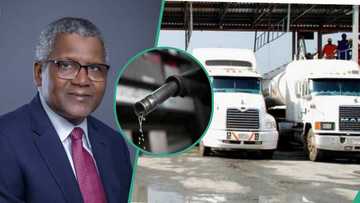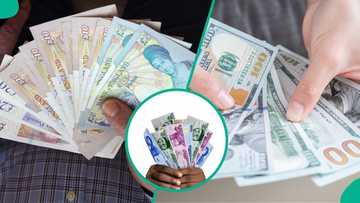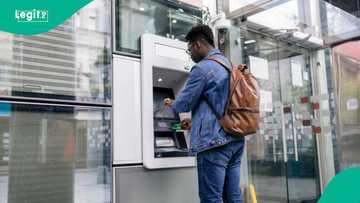Petrol Imported Into Nigeria Drops as Dealers Announce New Fuel Price
- Nigeria's reliance on imported petrol dropped significantly in the first quarter of 2025, with import expenditures falling by 54% year-on-year
- The refinery, which began full-scale production in late 2024, now contributes to a large portion of Nigeria's daily petrol demand, helping reduce import costs
- Additionally, the NMDPRA reported a 29.9 million-litre reduction in petrol imports over the past eight months, further reflecting the impact of local refinery output
Legit.ng journalist Zainab Iwayemi has 5-year-experience covering the Economy, Technology, and Capital Market.
Nigeria's dependence on imported petrol saw a sharp decline in the first quarter of 2025, with the country's petrol import expenditure plummeting by 54% compared to the previous year, according to data from the National Bureau of Statistics (NBS).
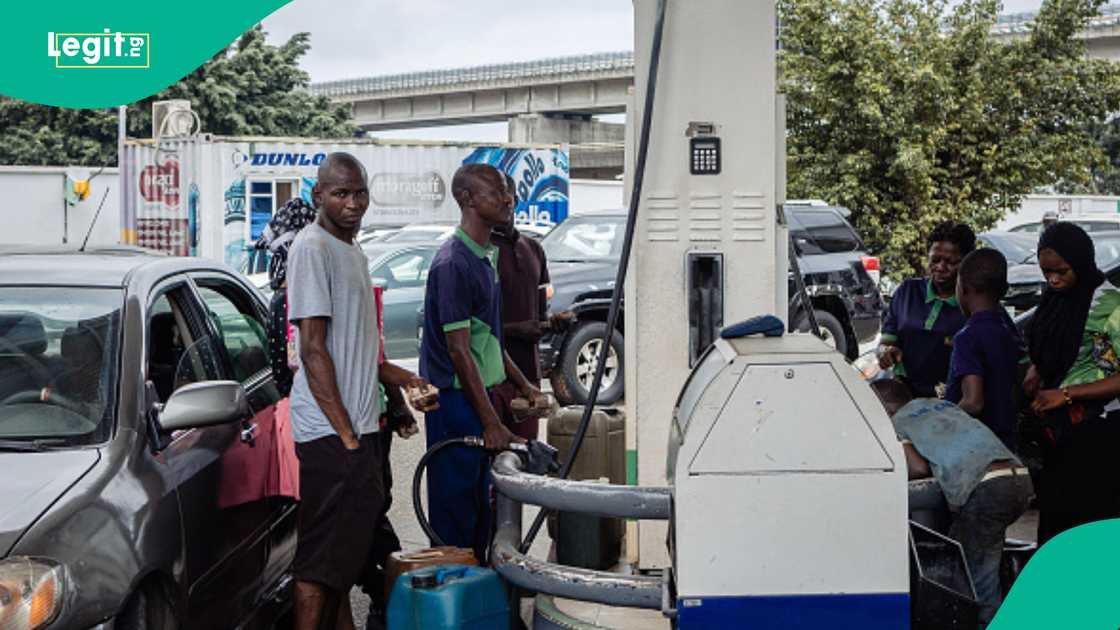
Source: Getty Images
This significant drop was attributed to the increased local production from the Dangote Petroleum Refinery, which has been operating at nearly full capacity, thereby decreasing Nigeria’s reliance on imported fuel.
Dangote refinery reduces Nigeria's fuel import
The most recent NBS report showed that Nigeria spent $1.2 billion on petrol imports in the first quarter of 2025, a significant decrease from $2.6 billion during the same period last year.
This makes it the lowest quarterly import expenditure since 2020 and highlights the growing influence of the Dangote Refinery, which began full-scale production in late 2024, with a capacity of 650,000 barrels per day.
Industry analysts credit the substantial decline to the refinery’s capacity to fulfil a large portion of Nigeria’s daily petrol demand, estimated at approximately 50 million litres.
Prior to the Dangote Refinery becoming operational, Nigeria relied on imports for nearly 90% of its petrol, which made the economy vulnerable to foreign exchange fluctuations and disruptions in the supply chain.
According to data from the National Bureau of Statistics (NBS), Nigeria spent N1.76 trillion on petrol imports in the first quarter of 2025, reflecting a 46.68% decrease from the previous quarter.
A year-on-year comparison shows a 33.14% decline in import costs, from N2.63 trillion in Q1 2024 to N1.76 trillion in Q1 2025.
Energy analysts had predicted that the commencement of operations at the Dangote Refinery, along with the rise of several modular refineries, would reduce the country's reliance on imported petrol.
“They are importing a lot less, and traders are making up the shortfall from offshore Lome” one trader told Platts, referring to the nearby transshipment hub off the coast of Togo where traders blend product.
Bose Smith said,
"It is expected that when Dangote refinery starts running in fll capacity, Nigerians will enjoy more."
In February, Dangote Refinery announced that it would meet up to 60% of Nigeria's domestic petrol demand as it nears its full capacity, according to company estimates.
In a late January interview with Platts, a Dangote Group executive revealed that the refinery was producing more than 30 million litres of petrol per day, with the facility operating at over 85% capacity.
This output, approximately 200,000 barrels per day (bpd), is expected to fulfil the majority of Nigeria's estimated daily petrol demand of around 350,000 bpd, as noted by S&P Global Commodity Insights analysts.
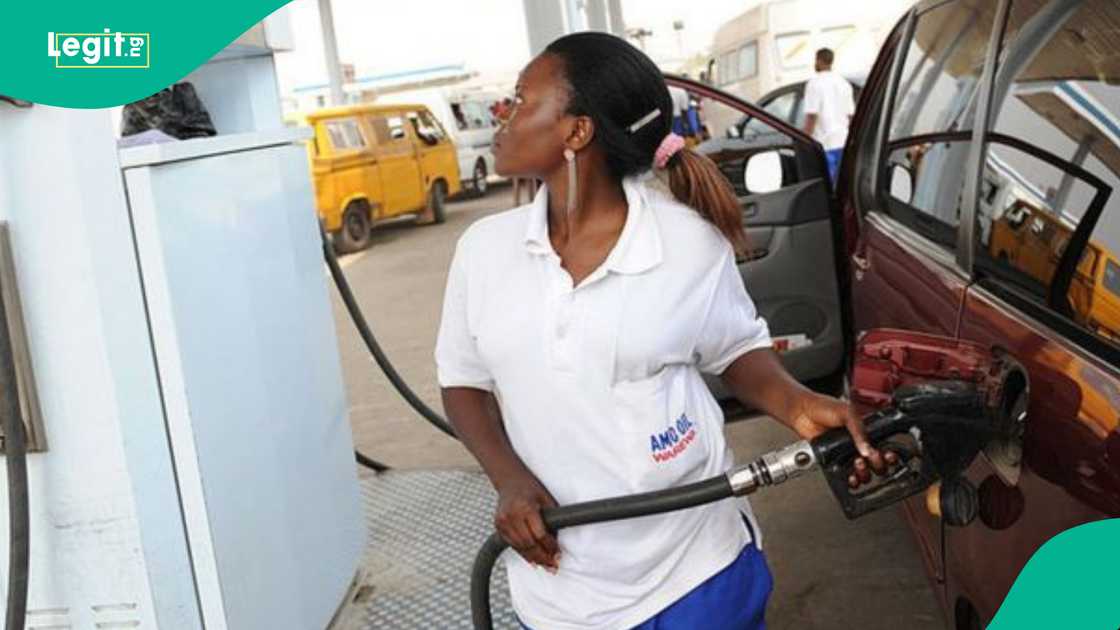
Source: UGC
Petrol imports plunge by 30 million litres
The Nigerian Midstream and Downstream Petroleum Regulatory Authority (NMDPRA) reported a reduction of 29.9 million litres in petrol imports to Nigeria over the past eight months.
Farouk Ahmed, CEO of NMDPRA, explained that the country's daily petrol imports had decreased from 44.6 million litres in August 2024 to 14.7 million litres by April 13.
He credited the decline in imports to a rise in output from local refineries.
4 major dealers hike petrol, diesel price
Legit.ng reported that there are indications that pump prices for diesel and petrol in the domestic market may increase due to the rise in Nigeria's Bonny Light, which climbed by 3.84% to $67.50 per barrel from $65 in the global market.
On Tuesday, June 10, 2025, research showed that four major depot owners raised the price of either petrol or diesel to over N1,050 per litre and N869 per litre, respectively.
The fuel price hikes were seen with dealers such as Chisco, Chipet, and Master Energy, while First Fortune increased its diesel depot prices to N950 per litre from N945, and Chisco adjusted its petrol price to N1,050 per litre from N1,045.
Proofreading by James Ojo, copy editor at Legit.ng.
Source: Legit.ng


